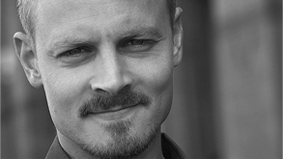“The intuitive mind is a sacred gift and the rational mind is a faithful servant” Albert Einstein
This latest RSA Animate by reknowned psychiatrist Iain McGilchrist (and the accompanying book) is a powerful evocation of how the divergent, contradicting nature of the thinking from the two hemispheres of our brain (and how they interrelate) have shaped, and continue to shape, our world.
Please accept targeting cookies to see this content
The right hemisphere, he says, is the ‘master’, with a capacity for handling uncertainty and a sustained, broad, open, empathetic, flexible view of the world. In contrast the left hemisphere is the ’emissary’, narrow, with a sharply focused attention to detail and a preference for the mechanical, the absolute, the literal. Whilst the left brain “yields clarity and things that are known, fixed, static, isolated, decontextualised, explicit, general in nature, but ultimately lifeless”, the right hemisphere “yields a world of individual, changing, evolving, interconnected, implicit, incarnate, living beings within the context of the lived world but in the nature of things never fully graspable, never fully known”.
Gilchrist’s argument is that the two hemispheres offer us two very different views of the world that we combine in different ways all the time, but that whilst most societies (including our modern one) often begin with a wonderfully balanced view of the world that combines both types of thinking, slowly over time we drift toward favouring left-brain. This is due in no small part to the fact that the left hemisphere’s view is attractive and convincing. It’s vocal, self-consistent, economical model reducts everything that doesn’t fit. We get trapped in a ‘hall of mirrors’ effect whereby the more we favour this kind of thinking the more we just get reflected back into knowing more about what we know, about what we know, about what we know. In doing so we create a society that “honours the servant, but has forgotten the gift”.
I think the same is true in much of life, not least in marketing. We automate for efficiency. We favour the virtual over the real, the mechanical over the conscious, the technical over the personal. We like certainty. It’s an attractive route that has its own advantages and benefits. One of the biggest contrarient contentions in our industry right now is between the art and the science in what we do. We shouldn’t lose sight of the fact that great marketing is all about achieving a good balance between the two. Technology is an enabler of creativity, not a substitute for it.
You can see the full lecture, and of-course buy the book.
Image by: TZA
Original Post: http://neilperkin.typepad.com/only_dead_fish/2011/10/the-divided-brain.html




